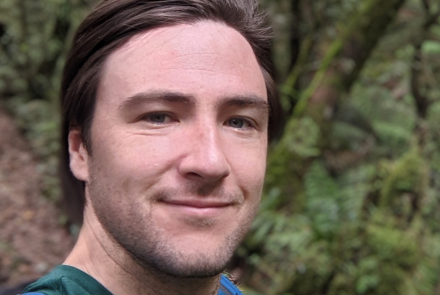
Reshaping how wider society sees economics and development
Recent Master of Environmental and Resource Economics graduate Clive O’Connor’s love of nature developed at a young age. Growing up in the far north of New South Wales and later living in Scotland, he always loved hiking and getting outdoors. Even long after those days in the bush, however, he always remembered the importance - and the vulnerability - of the natural world.
It was only natural then, that having studied economics as an undergraduate, Clive would look to combine his academic expertise and personal passion. However, doing so required challenging many of his previous assumptions.
“I became a little disenchanted with prevailing economic wisdom in the face of growing inequality, climate crises, and political fracturing.”
In response to what he saw as classical economics’s failure to account for the troubles all around him, Clive took it upon himself to broaden his horizons
“To make sense of it I started reading more about how economies can serve society to create a better world for everyone. A couple of key books that shifted my worldview were Why Nations Fail by Daron Acemoglu and James A. Robinson, and Doughnut Economics by Kate Raworth. Doughnut Economics got me thinking about ecological economics and how maybe I could use my undergrad studies in economics as a way to work towards resolving some of the key issues facing the world today.”
Inspired to further his knowledge of how economics can support a more just and sustainable world, Clive found his way to the Crawford School. Once in Canberra, Clive was quickly impressed by the diversity and experience of his peers.
“I had a fantastic time at Crawford. I met people from all over the world, with very different backgrounds to mine. My classmates often worked in government agencies, NGOs, or private industry, so the experience and expertise in class was formidable.”
However, it was the collaborative approach to learning and teaching that made the biggest impact on him.
“It never felt like competition, everyone always wanted to collaborate, discuss ideas and compare notes on what we were learning. It was a terrific place to learn.”
Working together with experienced professionals and academics from around the globe on real environmental and economic policy issues was a real highlight for Clive. In particular, he enjoyed the course ‘Modelling the Global Economy’ convened by Professor Warwick McKibbin.
“It may not have the flashiest name but the insights and policy implications from the modelling are cutting edge and extremely interesting.”
Every course Clive took at Crawford offered new challenges and new discoveries. By learning from world-class academics and practitioners, he realised that there was much more to economics than he’d ever previously been aware of.
“The classes covered very interesting topics that I hadn’t considered prior to attending, and the lecturers were without exception accomplished, helpful and personable.”
His experience has led him to urge all Crawford students to step out of their comfort zone, and take a chance on a subject or issue area they’d never considered before.
“The economics programs are great, but there is so much offered in the Crawford School that it is worthwhile looking into fields you hadn’t initially considered.”
Using the knowledge and experience he gained from Crawford, Clive is now committed to helping reshape how wider society sees economics and development.
“I think in the future the concepts of economic growth, development, and wellbeing will have to evolve, as we try to limit emissions and stop biodiversity loss. I think economics and policy will need to more earnestly explore decoupling wellbeing from economic growth, or redefine economic growth to include measures of wellbeing.”
But before reshaping economics for a more just world, Clive is planning on taking a well-deserved break.
“I am looking forward to a holiday…it will be nice to relax after a full-on 18 months of study.”
Updated: 21 November 2024/Responsible Officer: Crawford Engagement/Page Contact: CAP Web Team











